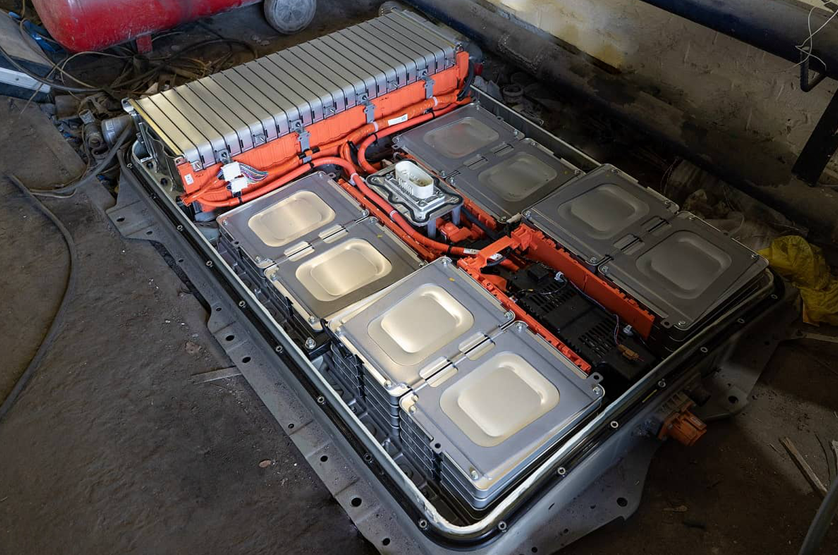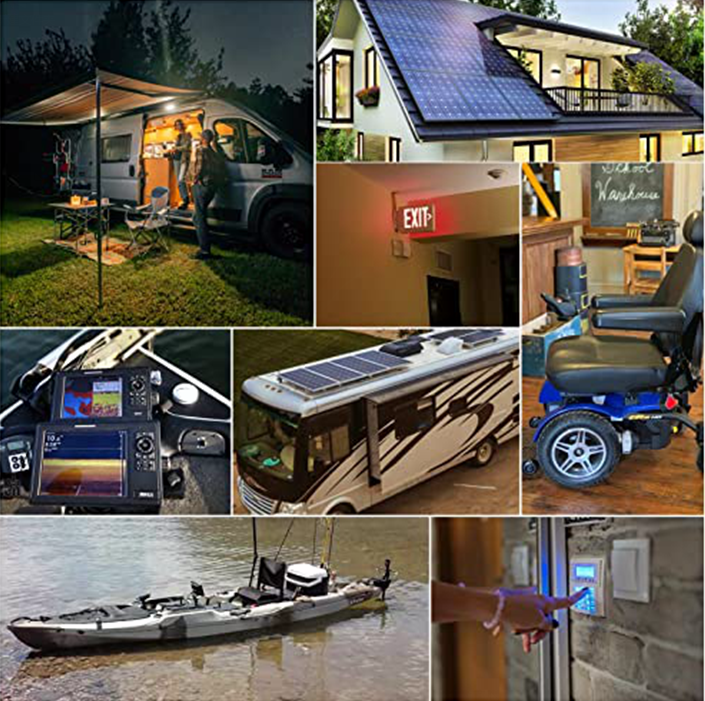Advancements in Low-Speed Electric Vehicles: Lithium Battery Technology Takes the Lead
In recent years, there has been a significant shift towards eco-friendly transportation options, and low-speed electric vehicles (LSEVs) have emerged as a promising alternative. These vehicles are designed for short-distance commutes and are particularly popular in urban areas where congestion and pollution are major concerns. One key factor that has contributed to the increasing popularity of LSEVs is the advancements in lithium battery technology, which has greatly improved their performance and range.
LSEVs are typically powered by batteries that provide electrical energy to the motor, enabling the vehicle to move. Over the years, various battery technologies have been used in LSEVs, including lead-acid batteries, nickel-metal hydride (NiMH) batteries, and lithium-ion batteries. However, lithium battery technology has emerged as the frontrunner due to its superior characteristics and advantages.
One of the main advantages of lithium batteries is their energy density. Lithium-ion batteries have a much higher energy density compared to lead-acid and NiMH batteries, meaning they can store more energy in a smaller and lighter package. This translates to increased range and longer operating time for LSEVs. With advancements in lithium battery technology, LSEVs can now travel further distances on a single charge, making them more practical for daily commuting.
In addition to higher energy density, lithium batteries also have a longer lifespan compared to other battery types. Lead-acid batteries, for example, tend to degrade quickly and require frequent replacements. On the other hand, lithium batteries can last for several years, reducing the overall maintenance cost of LSEVs. This improved longevity makes LSEVs a more sustainable and cost-effective transportation solution.
Furthermore, lithium batteries offer faster charging times, which is a significant advantage for LSEV owners. With advancements in charging infrastructure, it is now possible to charge a lithium battery to full capacity in just a few hours. This means LSEV owners can conveniently recharge their vehicles overnight or during short breaks, allowing for uninterrupted usage during the day.
Another crucial aspect of lithium battery technology is its environmental impact. Unlike lead-acid batteries, lithium batteries do not contain hazardous materials such as lead and sulfuric acid, making them safer to handle and dispose of. Additionally, lithium batteries are highly recyclable, reducing the environmental footprint of LSEVs. This aligns with the overall goal of eco-friendly transportation and contributes to a cleaner and greener environment.
The advancements in lithium battery technology have not only improved the performance of LSEVs but also expanded their applications. Today, LSEVs are not limited to golf courses or gated communities; they are increasingly being used for various purposes such as food delivery, campus transportation, and urban commuting. The enhanced range and durability provided by lithium batteries have made LSEVs a viable option for a wide range of users.

While lithium battery technology has taken the lead in LSEVs, it is important to note that there are ongoing efforts to further improve battery performance and sustainability. Researchers are exploring new materials and designs to enhance energy storage capabilities and reduce production costs. Additionally, advancements in battery management systems and smart charging technologies are being developed to optimize battery usage and prolong lifespan.
In conclusion, advancements in lithium battery technology have revolutionized the low-speed electric vehicle industry. With their higher energy density, longer lifespan, faster charging times, and environmental benefits, lithium batteries have become the preferred choice for powering LSEVs. As technology continues to advance, we can expect even more exciting developments in the field of low-speed electric vehicles, making them an increasingly attractive and sustainable transportation option for the future.
-
 The increasing demand for efficient and reliable power solutions has led to the development of better battery technologies. One such technology is the lithium iron phosphate (LiFePO4) battery. LiFePO4 batteries are rapidly becoming popular due to their high energy density, long cycle life, and low maintenance requirements. In this article, we will take a closer look at the 12V 100Ah...اقرأ أكثر
The increasing demand for efficient and reliable power solutions has led to the development of better battery technologies. One such technology is the lithium iron phosphate (LiFePO4) battery. LiFePO4 batteries are rapidly becoming popular due to their high energy density, long cycle life, and low maintenance requirements. In this article, we will take a closer look at the 12V 100Ah...اقرأ أكثر -
 Introduction In recent years, there has been a growing demand for high-performance batteries that can provide reliable and efficient power for various applications. One such battery technology that has gained significant attention is the Lithium Iron Phosphate (LiFePO4) battery. These batteries offer numerous advantages, including high energy density, longer lifespan, and enhanced safety. To ensure optimal performance and longevity of...اقرأ أكثر
Introduction In recent years, there has been a growing demand for high-performance batteries that can provide reliable and efficient power for various applications. One such battery technology that has gained significant attention is the Lithium Iron Phosphate (LiFePO4) battery. These batteries offer numerous advantages, including high energy density, longer lifespan, and enhanced safety. To ensure optimal performance and longevity of...اقرأ أكثر -
 Energy storage is becoming increasingly important as renewable energy sources, such as solar and wind, continue to gain popularity. One of the most promising technologies in this field is the use of lithium batteries in energy storage power stations. In this article, we will explore the advantages and challenges of utilizing lithium batteries for energy storage and how they can...اقرأ أكثر
Energy storage is becoming increasingly important as renewable energy sources, such as solar and wind, continue to gain popularity. One of the most promising technologies in this field is the use of lithium batteries in energy storage power stations. In this article, we will explore the advantages and challenges of utilizing lithium batteries for energy storage and how they can...اقرأ أكثر -
 As the world is moving towards a sustainable future, the demand for efficient energy storage solutions is increasing rapidly. The High Capacity 12V 100Ah LiFePO4 Lithium Iron Phosphate Battery is a revolutionary product that promises to deliver reliable and sustainable energy storage solutions for various applications. In this article, we will discuss the features, advantages, and potential applications of this...اقرأ أكثر
As the world is moving towards a sustainable future, the demand for efficient energy storage solutions is increasing rapidly. The High Capacity 12V 100Ah LiFePO4 Lithium Iron Phosphate Battery is a revolutionary product that promises to deliver reliable and sustainable energy storage solutions for various applications. In this article, we will discuss the features, advantages, and potential applications of this...اقرأ أكثر -
 The importance of having a reliable battery charger for your vehicle cannot be overstated. Whether you are using your vehicle for personal or commercial purposes, a dead battery can cause significant inconvenience and even financial loss. That is why you need an efficient and reliable onboard battery charger like the 24V onboard battery charger to ensure that your vehicle's battery...اقرأ أكثر
The importance of having a reliable battery charger for your vehicle cannot be overstated. Whether you are using your vehicle for personal or commercial purposes, a dead battery can cause significant inconvenience and even financial loss. That is why you need an efficient and reliable onboard battery charger like the 24V onboard battery charger to ensure that your vehicle's battery...اقرأ أكثر -
 As energy storage technology continues to evolve, more and more people are turning to lithium iron phosphate (LifePO4) batteries for their energy needs. These batteries are known for their high energy density, long cycle life, and low self-discharge rate. With so many different options available on the market, it can be difficult to know which one is right for your...اقرأ أكثر
As energy storage technology continues to evolve, more and more people are turning to lithium iron phosphate (LifePO4) batteries for their energy needs. These batteries are known for their high energy density, long cycle life, and low self-discharge rate. With so many different options available on the market, it can be difficult to know which one is right for your...اقرأ أكثر -
 Introduction In recent years, the advancements in technology have revolutionized various sectors, including the military. One significant development is the application of lithium batteries in military equipment. Lithium batteries have become the preferred choice due to their high energy density, lightweight nature, and extended lifespan. This article aims to discuss the advancements of lithium batteries in military equipment, highlighting their...اقرأ أكثر
Introduction In recent years, the advancements in technology have revolutionized various sectors, including the military. One significant development is the application of lithium batteries in military equipment. Lithium batteries have become the preferred choice due to their high energy density, lightweight nature, and extended lifespan. This article aims to discuss the advancements of lithium batteries in military equipment, highlighting their...اقرأ أكثر

